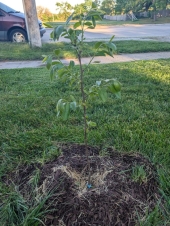Hello,
First I want to thank you for taking a look at this post. I'm looking for people in our community that actually have experience in something specific. I would like to put in an agricultural well for an approximately 10 acre piece of land. If successful I will scale up for other parcels with improvements. I completely understand that the type of agriculture on the land can dictate specifications. The normal ag well scenario is this: Dig 300' + (in my area), put a high HP pump on top of the well and electricity carries the day. I'm not looking for that. I've had multiple ag wells in the past and I'm looking for an alternative.
I'm looking for a situation that has a windmill that pulls up the water and puts it into a storage tank. I'd like to have multiple options in my set up. I would like to use gravity for some drip irrigation, I would like to use some sort of pump powered by some alternative energy set up if possible to generate psi for other uses of irrigating other areas.
The key is this: I'm willing to set up a wind plus other methods agricultural system that uses a variety of methods. I'm keeping an open mind to suggestions hence this post.
I'm soliciting opinions from those who have tried this and their successes and not so proud moments. Some of the specifics I'm looking for are specific brands, specific set ups, cost analysis, etc. I'm not looking for my question to be answered with a long list of questions. I think most of you know what I'm talking about there.
So many times we do our research but it's people selling things and people who actually haven't done what they're talking about. I'm looking for the veterans.
Thank you






